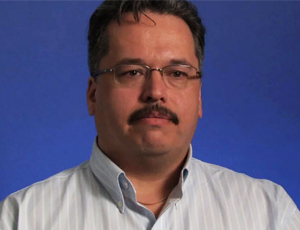Caregivers and patients share their experiences in new The Truth of It videos
Insights valuable for improving care
June 24, 2013

Sisters. Husbands. Daughters. Fathers. Familiar roles transform when one cares for a family member or close friend living with cancer. The experiences of patients moving to the palliative stage of their cancer journey are uniquely dynamic and difficult. A new selection of videos from the Partnership’s patient video series, The Truth of It, aims to support people taking on caregiver roles or those receiving end-of-life care, as well as the health-care providers working with them.
“You have to make some sacrifices in your own life to be able to spend some quality time and not have any regrets with that family member with cancer, but you have to take care of yourself too,” says Jeff, who speaks of his experience supporting his sister through a two-year struggle with colorectal cancer.
This second phase of the video series complements the original collection of first-hand accounts of Canadians diagnosed with cancer, first released in August 2010. These interviews, created in collaboration with the Health Design Lab of the Li Ka Shing Knowledge Institute of St. Michael’s, employ the power of storytelling to offer a wider window on the cancer experience.
The expanded series, a continuing initiative reflecting the Partnership’s commitment to embedding a person-centred perspective throughout the cancer journey and part of a growing collection of information, resources and services available on cancerview.ca, is offered both online and in DVD format. With professional uptake being encouraged through workshops and customization of the series for different settings, the potential to improve care for patients and their caregivers is promising.
“The Truth of It’ provides a wonderful illustration of people’s experiences, documenting feelings and priorities at different stages of the cancer journey,” says Susan Blacker, who teaches a Master of Social Work class at the University of Toronto. “It has been a great resource to help my students better understand how patients and families are affected by cancer.”
